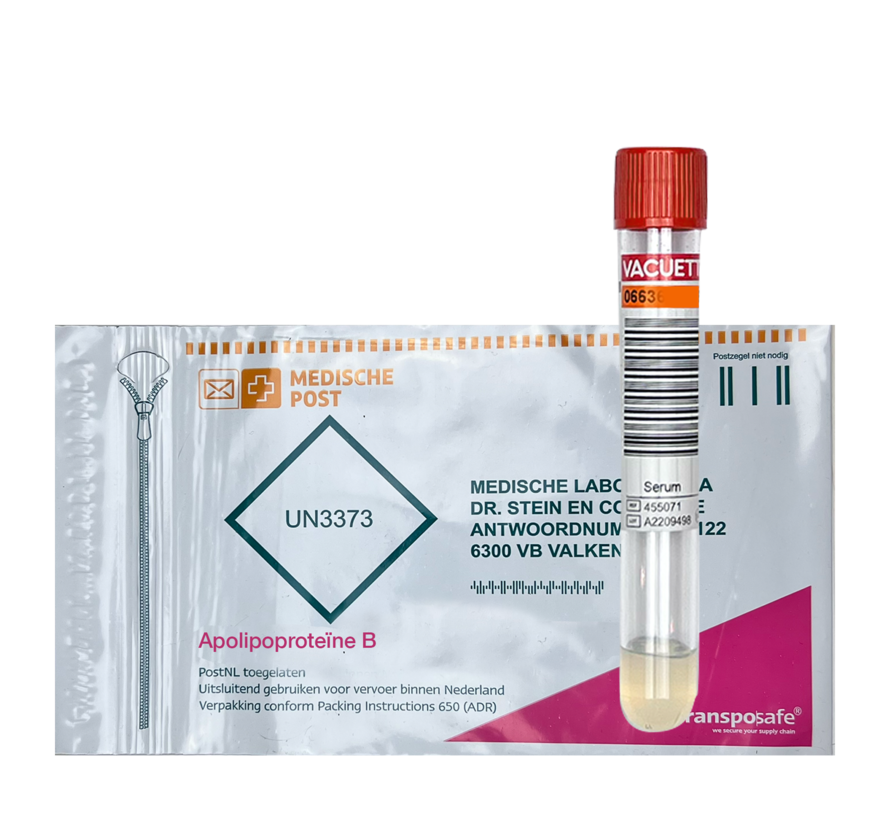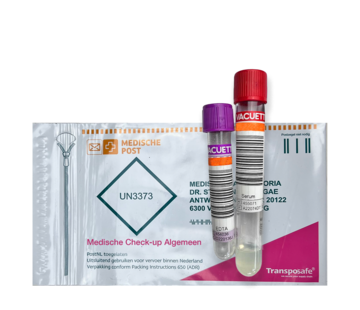Apolipoprotein B (ApoB).
This test measures apolipoprotein B (Apo B) in the blood.
Apo B is an apolipoprotein, a protein that is part of the fat transporting particles VLDL (very low density lipoprotein) and LDL (low density lipoprotein) that transport cholesterol and triglycerides to tissues. LDL is sometimes called the bad cholesterol.
The body needs cholesterol. If there is too much bad cholesterol (LDL) in the body, it can lead to fatty deposits in the blood vessels (plaques) and the blood vessels becoming stiffer. This can cause a blockage that results in a heart attack.
The amount of Apo B increases when the amount of LDL in the blood increases and decreases when the amount of LDL in the blood decreases.
An elevated Apo B result may fit with:
- Large amounts of fat in the blood (hyperlipidemia)
- Untreated diabetes
- Use of medicines, such as hormones (progestogens and androgens), some blood pressure reducers (beta blockers) and diuretics
- An inherited disease with high cholesterol and triglycerides (familial combined hyperlipidemia)
- Reduced thyroid function (hypothyroidism)
- Kidney disease (nephrotic syndrome)
- Pregnancy (temporary increase of Apo B)Reduced
A lowered Apo B rash may fit:
- Use of medicines, such as some hormones (oestrogens, contraceptive pill) cholesterol-lowering drugs and thyroid hormone
- Enhanced thyroid function (hyperthyroidism)
- Malnutrition
- A rare disease (Reye's syndrome)
- Lines (weight loss)
- Serious illnesses
- Operation
- Liver disease (cirrhosis)
- A rare inherited disease (apolipoprotein B deficiency)
With an elevated Apo B, there is often also an elevated LDL ("bad" cholesterol). This may be because the food contains too much fat or because the body cannot clear LDL. With an elevated LDL, the risk of cardiovascular disease is increased.
With an elevated Apo B, there is often also an elevated LDL ("bad" cholesterol). This may be because the food contains too much fat or because the body cannot clear LDL. When LDL is elevated, the risk of cardiovascular disease is increased.
APO B lowered in: Lipoprotein deficiency, hyperlipoproteinemia type I (inherited metabolic disease)
APO B increased in: Hyperlipoproteinemia type II, III, V, heart attack, PAOD, vascular problems legs (etalage legs)











